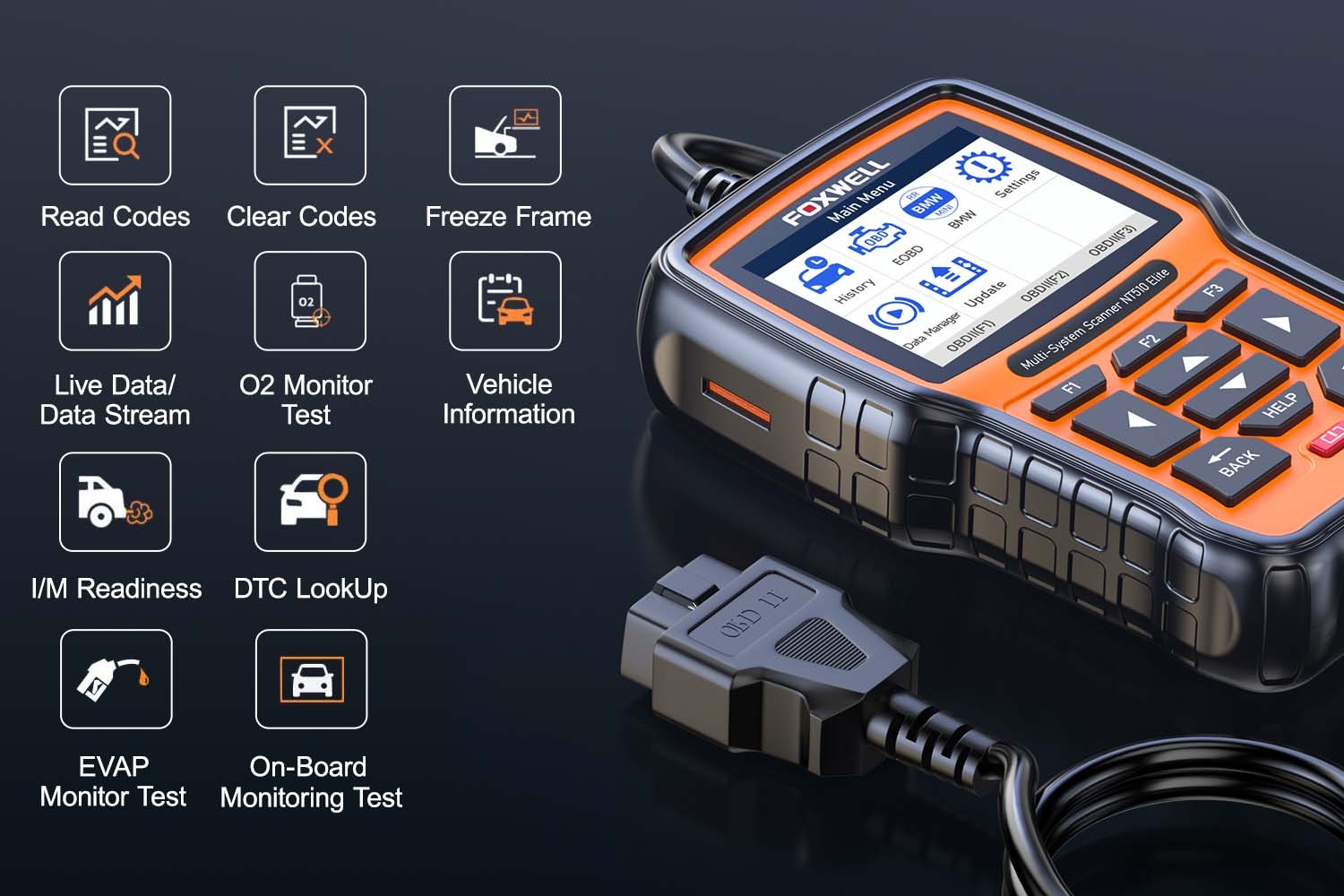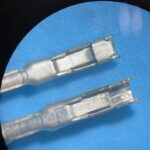Modern vehicles rely heavily on fuel injectors, sophisticated components that precisely deliver fuel into engine combustion chambers. These devices are critical for optimizing engine performance, fuel efficiency, and managing emissions. Properly functioning fuel injectors are essential for the overall health and operation of your vehicle.
Over time, fuel injectors can experience issues like clogging, wear, or general malfunction. These problems can manifest as rough idling, engine misfires, and decreased fuel economy, causing headaches for both car owners and mechanics. Identifying and maintaining fuel injectors is crucial, and understanding how to use diagnostic tools like OBD2 scanners is vital for modern vehicle care.
Understanding OBD2 Scanners in Fuel Injector Diagnostics
On-Board Diagnostics (OBD) systems have transformed vehicle repair, and OBD2 scanners are at the forefront of this revolution. These systems enable your vehicle’s Electronic Control Unit (ECU) to communicate with a diagnostic scanner, providing valuable insights into various components, including fuel injectors.
An OBD2 scanner grants access to a wealth of information, including trouble codes, real-time data streams, and specialized diagnostic tests. This makes them indispensable for pinpointing fuel injector problems, such as blockages or malfunctions, and even for processes like Injectors Reset Obd2 after maintenance.
Preparing for Fuel Injector Testing with an OBD2 Scanner
Proper preparation is key before you begin testing fuel injectors with an OBD2 scanner. This involves gathering the necessary tools, familiarizing yourself with your vehicle’s setup, and prioritizing safety.
First, ensure you have an OBD2 scanner that is compatible with your vehicle’s make and model. Locate the diagnostic port, typically found under the dashboard on the driver’s side. Park your vehicle on a level surface, turn off the engine, and then connect your scanner.
Using a Foxwell OBD2 Scanner to Check Fuel Injectors
Foxwell Diagnostics offers OBD2 scanners that simplify the process of checking fuel injectors. These steps will guide you through an efficient and accurate diagnostic process, allowing you to effectively examine your fuel injectors.
Preparation: To use an OBD2 scanner for fuel injector checks, you’ll need a compatible scanner, such as the Foxwell NT301, and a vehicle equipped with an OBD2 port. These are standard in most cars manufactured after 1996. Follow these preparation steps:
- Locate the OBD2 port in your vehicle, usually beneath the dashboard. Ensure the ignition is turned off before plugging in the scanner.
- Plug the OBD2 scanner securely into the port.
- Retrieving Fuel Injector Data: Once connected:
- Turn the vehicle’s ignition to the “ON” position, but do not start the engine.
- Power on your OBD2 scanner.
Navigating Your Scanner to Access ECU Data
Use your scanner’s menu to establish a connection with the ECU. Typically, you will select options to connect to the vehicle’s computer system.
Access the “Live Data” or “Data Stream” menu on your Foxwell scanner. This will display real-time data being transmitted from the ECU.
Key Parameters for Fuel Injector Diagnosis
To effectively diagnose fuel injector issues, concentrate on these critical parameters within the live data stream:
Fuel Trim: This indicates how the engine’s computer is adjusting fuel delivery to maintain the optimal air-fuel ratio. Significantly high positive or negative fuel trim values can be a strong indicator of injector problems.
Injector Pulse Width: This parameter represents the duration for which the fuel injector is open and spraying fuel. An abnormal pulse width, either too long or too short, can signal a malfunctioning injector.
Cylinder Misfire: Monitor cylinder-specific misfire counts. Repeated misfires in a particular cylinder often point to a problem with that cylinder’s fuel injector.
Diagnosing and Addressing Injector Problems
To diagnose injector problems, compare the fuel trim, injector pulse width, and cylinder misfire data against expected or normal values. Significant deviations from these norms are red flags that suggest injector issues.
Check for specific Diagnostic Trouble Codes (DTCs) related to injectors. Codes like P0200 series codes specifically indicate injector circuit malfunctions and can be crucial for pinpointing problems.
Once injector issues are identified and addressed through repair or replacement, clearing the diagnostic codes and potentially performing an injectors reset obd2 procedure is often the next step.
Use the code clearing function on your Foxwell OBD2 scanner to erase any injector-related codes stored in the ECU.
Consider performing an ECU reset function if your scanner offers it. This can help the system relearn fuel delivery parameters with the repaired or replaced injectors and ensure optimal engine operation. While not always strictly necessary for injector replacement, a reset can sometimes smooth out engine performance after such repairs.
Utilizing a Foxwell OBD2 scanner for fuel injector diagnostics and maintenance offers numerous benefits that enhance vehicle care and performance. These advantages range from early problem detection to improved engine efficiency.
Benefits of OBD2 Scanners for Fuel Injector Maintenance
Foxwell Diagnostics OBD2 scanners provide significant advantages over traditional diagnostic methods, particularly in the early detection of issues. This includes fuel injector problems that, if left unaddressed, can lead to reduced engine performance and potentially more severe engine damage.
Preventing Engine Damage
Fuel injectors are vital for proper engine operation. Malfunctions can lead to improper fuel delivery and misfires, potentially causing significant engine damage over time.
Using an OBD2 scanner like the Foxwell NT510 Elite allows for early identification and resolution of fuel injector problems. This proactive approach can prevent costly repairs and extend the lifespan of your engine.
Enhancing Engine Performance
By promptly diagnosing and resolving fuel injector issues, drivers can ensure their vehicles operate at peak performance. Efficient fuel injection leads to improved engine responsiveness, better acceleration, and smoother overall operation.
Improving Fuel Efficiency
OBD2 scanners are instrumental in improving fuel economy by detecting malfunctioning injectors that might be causing the engine to run too rich or too lean. Identifying and fixing these issues optimizes fuel delivery and reduces fuel waste.
Optimizing Fuel Delivery and Monitoring Fuel Trim
A professional-grade OBD2 scanner like the Foxwell NT510 Elite ensures that fuel injectors dispense the precise amount of fuel needed for optimal combustion. This prevents fuel wastage and contributes to long-term cost savings.
Foxwell OBD2 scanners also enable real-time monitoring of fuel trim levels. By keeping fuel trim within the ideal range, drivers can ensure efficient fuel consumption and reduce unnecessary fuel usage.
Reducing Harmful Emissions and Ensuring Compliance
Properly functioning fuel injectors are crucial for minimizing harmful emissions, benefiting both the environment and vehicle compliance. Faulty injectors can lead to incomplete fuel combustion, increasing the release of harmful gases.
OBD2 scanners used for fuel injector diagnostics assist drivers in identifying and addressing issues that contribute to increased emissions, such as improper fuel mixtures. Correcting these problems helps lower emissions and contributes to a cleaner environment.
In many regions, vehicles must pass emissions tests to be legally operated. A Foxwell Diagnostics OBD2 scanner can help ensure vehicles meet these standards by diagnosing and correcting fuel injector issues, preventing test failures and potential penalties.
Foxwell Diagnostics OBD2 scanners are designed with user-friendliness in mind, making fuel injector diagnostics accessible to both professional technicians and DIY enthusiasts.
User-Friendly Interface and Comprehensive Diagnostics
Foxwell OBD2 scanners feature intuitive interfaces with clear menus and easily understandable diagnostic information. This makes diagnosing and resolving fuel injector problems more straightforward, even for those without extensive mechanical expertise.
Foxwell scanners provide comprehensive diagnostic capabilities, including live data streaming, freeze frame data capture, and detailed code definitions. This thoroughness ensures accurate identification of fuel injector issues and their underlying causes, facilitating effective repairs and maintenance, potentially including procedures like injectors reset obd2 when necessary.
Conclusion
Foxwell OBD2 scanners, with their user-friendly interfaces and comprehensive diagnostic features, empower both drivers and mechanics to efficiently detect and address fuel injector problems.
Early diagnosis of fuel injector issues helps prevent engine damage, enhances vehicle performance, and contributes to a cleaner environment. Furthermore, properly functioning injectors lead to fuel savings and a more economical driving experience.
Whether you are a professional mechanic or a dedicated DIY enthusiast, Foxwell Diagnostics OBD2 scanners offer powerful and accessible tools for vehicle diagnostics, particularly for maintaining optimal fuel injector health. Their ease of use, detailed data insights, and reliable performance make these scanners invaluable assets in vehicle maintenance, helping to ensure your car remains in top condition.
FAQs
Can all OBD2 scanners detect fuel injectors?
No, not all OBD2 scanners have the advanced capabilities to diagnose fuel injector issues specifically. More advanced models offer features like live data streaming of fuel trim and injector pulse width, which are essential for injector diagnostics.
How often should I use an OBD2 scanner to inspect fuel injectors?
Regular inspections are recommended, ideally at least annually or whenever you notice symptoms of fuel injector problems, such as rough idling, misfires, or decreased fuel economy.
Can an OBD2 scanner fix fuel injector issues or perform an injectors reset obd2?
No, an OBD2 scanner is a diagnostic tool. It can identify fuel injector problems and allow you to clear codes after repairs, and some scanners may offer ECU reset functions that can be helpful after injector work. However, it cannot physically fix or reset the injectors themselves. Physical repair or replacement of injectors is a separate mechanical process.

